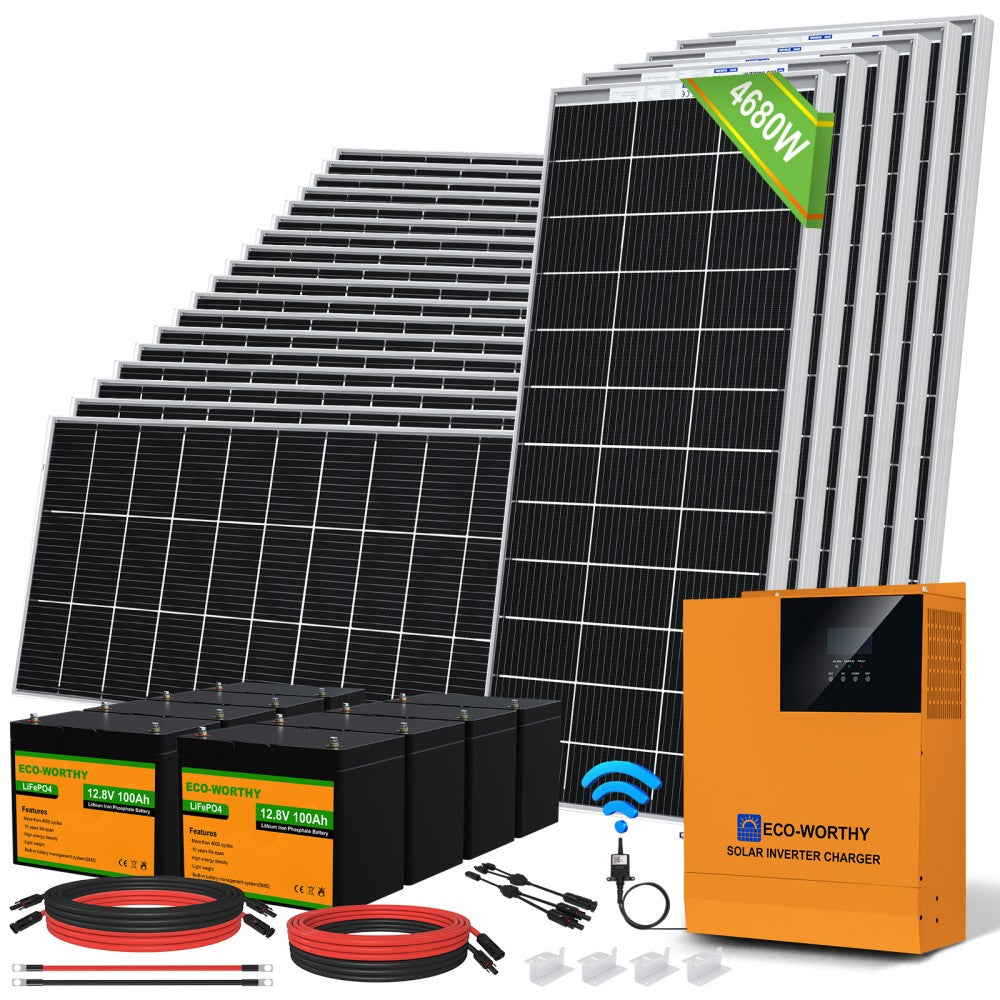In an era where sustainable energy solutions are becoming increasingly vital, off-grid solar kits offer a practical alternative for those seeking independence from traditional power sources. Whether you are looking to power a remote cabin, an RV, or simply want to reduce your carbon footprint, understanding these kits is essential.

What Are Off-Grid Solar Kits?
Off-grid solar kits are comprehensive packages designed to provide solar energy without reliance on the conventional electricity grid. These kits typically include solar panels, a charge controller, batteries, and an inverter. By harnessing solar energy, users can generate electricity for various applications, ensuring a reliable power supply even in isolated locations.
Key Components of Off-Grid Solar Kits
When selecting the right off-grid solar kit, it is crucial to understand its components:
- Solar Panels: These convert sunlight into electricity. The efficiency and wattage of the panels will significantly impact the overall performance of the system.
- Charge Controller: This device regulates the voltage and current coming from the solar panels to the batteries, preventing overcharging.
- Batteries: Essential for storing energy, batteries allow you to use electricity when sunlight is not available. Lithium-ion and lead-acid are common types.
- Inverter: This component converts the stored DC power from the batteries into AC power, which is used by most household appliances.
Choosing the Right Off-Grid Solar Kit
When considering off-grid solar kits, several factors should guide your decision:
- Energy Needs: Assess your daily energy consumption. This will help you determine the size and capacity of the solar kit required.
- Location: The amount of sunlight your location receives will influence the efficiency of your solar panels. Areas with more sunlight will require fewer panels.
- Budget: Off-grid solar kits come in various price ranges. Establishing a budget will help narrow down your options.
- Scalability: Consider whether you might want to expand your system in the future. Some kits allow for easy upgrades.
Benefits of Off-Grid Solar Kits
The advantages of using off-grid solar kits are numerous:
- Energy Independence: Generate your own power and reduce reliance on utility companies.
- Environmental Impact: Solar energy is renewable and significantly reduces your carbon footprint.
- Cost Savings: Although the initial investment may be high, long-term savings on electricity bills can be substantial.
Conclusion
In conclusion, selecting the right off-grid solar kit requires careful consideration of your energy needs, location, and budget. By understanding the components and benefits of these kits, you can make an informed decision that aligns with your lifestyle and sustainability goals. For a comprehensive range of options, visit  and explore the possibilities of solar energy today.
and explore the possibilities of solar energy today.








